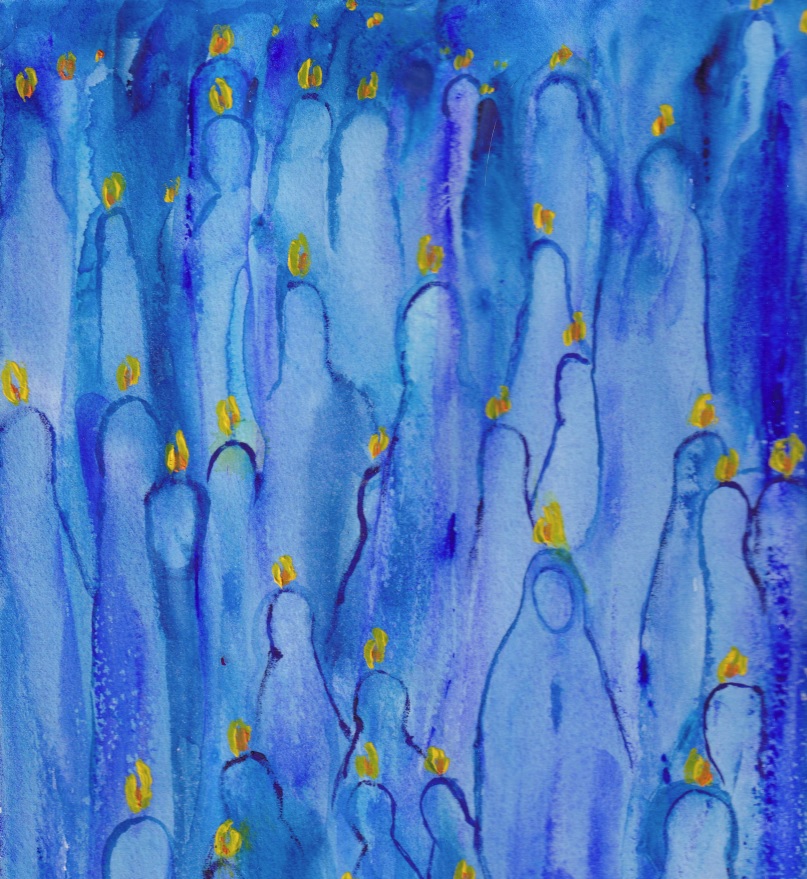Seekers recognizes that any member of the community may be called upon by God to give us the Word, and thus we have an open pulpit with a different preacher each week. Sermons preached at Seekers, as well as sermons preached by Seekers at other churches or events, are posted here, beginning with the most recent.
Click here for an archive of our sermons.
Feel free to use what is helpful from these sermons. We only ask that when substantial portions are abstracted or used in a written work, please credit Seekers Church and the author, and cite the URL.
“A Sermon Against White Supremacy in 4 Acts” by Erica Lloyd, Amy Moffit, Sallie Holmes, and Lucy Slater
June 20, 2021

Lucy said:
So first, I want to acknowledge that we are a diverse group, with White people, and Black, Indigenous, and other people of color in our midst. But today, we are white people, speaking primarily to white people about our white experience.
To me, white supremacy speaks to the American culture and systems we live in that have been built on the belief that white people constitute a superior race. It teaches white people to see people who are not white as strangers. Because of it, our ancestors committed murder and theft, and because of it we have learned from our ancestors to justify murder and theft. It is a system and a culture into which we have been born and by which we have been traumatized.
“Seeds of the Kingdom” by Elizabeth Gelfeld
June 13, 2021 This Tuesday we will finish a three-week class in the School of Christian Growth, on the parables. We’re using a book by Thomas Keating, Meditations on the Parables of Jesus. [footnote 1] Keating, who died in 2018 at the age of 95, was a Trappist monk and one of the developers of Centering Prayer, based on the method of Christian contemplative prayer described in the 14th-century spiritual classic The Cloud of Unknowing. Marjory and Mary are teaching the class, and they started off by asking us to reflect on the question, What is a parable? Here are some of the answers we came up with: A metaphor for how to live A story that turns our expectations upside-down A lesson that is not obvious — we have to dig for it It may even be subversive Parables were a part of the Jewish Wisdom tradition before Jesus’ time, but Jesus used parables in some new and surprising ways. In the Preface to his book Keating says, “When rightly understood, the parables help us to see how extraordinary a wisdom teacher Jesus really was, and how revolutionary . . . was the content of what he taught and…
“Procrastination vs Embodiment: A Report from My Journey” by Ken Burton
June 6, 2021

The last time I preached at Seekers was in September of 2019. Since then I have avoided it with a variety of excuses, the most recent of which is my frustration with our Zoom services, mainly that I can’t actually see any of you but rather must settle for a collection of pixels which have been electronically manipulated to approximate your appearance. And for some of you, it’s not even that but just your name or a photo. For me an important part of preaching is seeing you, being able to make eye contact and notice body language. Pixels, however accurate they may be, are no substitute for living, breathing bodies.
I have recently concluded, however, that this objection, despite its basic truth, is not of sufficient weight to justify not preaching. I believe that I am at least minimally competent as a preacher and sometimes a bit better than that. To not share that gift at least once or twice a year with my dear Seekers community is simply selfish, the constraints of Zoom notwithstanding. I came to this conclusion around the middle of April and proceeded to sign up for the next open preaching date which at the time was June 6, today. I did this without looking at the lectionary for today and without knowing the liturgical theme for this Season of Trinity because Celebration Circle had not yet found one. This might seem like a rash way of choosing a date to preach: what if I simply could not relate to the Biblical passages in the lectionary or did not respond to the liturgical theme? I did not consider these questions because I felt that if I was truly called to preach, then I could do so, details notwithstanding.
“Living as the Resurrected Body of Christ” by Pat Conover
May 30, 2021

I support the emerged language of Seekers that we are part of the Resurrected Body of Christ. It is a bold claim and it separates Seekers from the problems of the Nicene Creed tradition as promoted by Catholics or by Protestants in the tradition of Luther or Calvin.
I understand the emerged theology of Seekers as an example of progressive trinitarian theology that has reshaped the meanings of the traditional phrases Father, Son, and Holy Spirit. Naming ourselves as the Resurrected Body of Christ replaces the concept and imagery of the Son of God up in Heaven where he returned after he died on Earth.
We are parts of the Resurrected Body of Christ here and now. We are a current expression and shared embodiment of the ever changing relationships of communities of Christians who, from generation to generation, have oriented their lives to shared memories of the inspiration and guidance of Jesus. We are embodied memories of the inspiration and guidance of Jesus.
“Witnessing the Spirit” by Jacqie Wallen
May 23, 2021

I’m going to tell you a story I told once before, once before, quite a few years ago, when I preached on Pentecost. When I was in college, I had a Pentecost-like experience. I was at a party. It was late at night and I had not slept at all the night before. I had been up all night writing a paper and I had that combination of jitters and exhaustion you get when you’ve stayed up all night with the help of amphetamines. I’d also had drunk a lot of beer at the party so I was a little drunk, perhaps even on the edge of being hallucinatory because of the combination of beer and residual speed. I was lying on the floor with my bookbag under my head, half awake and half asleep. Some friends of mine were playing guitars and banjos and singing. They sang the song “Last Night I Had the Strangest Dream,” the song we just heard. As I listened to the song, I was in such an alternative reality that it felt as if the words were true, as if all of the world’s leaders really had gotten together in a big room and put an end to war. I was celebrating with the people in the streets below, dancing round and round. I can’t tell you how much joy I felt. It only lasted a moment, though, and then I realized that it was just a song—it hadn’t really happened. I was crushed—what a disappointment! But I’d had that taste of heaven. I had experienced the end of war. And I have never forgotten how that felt.